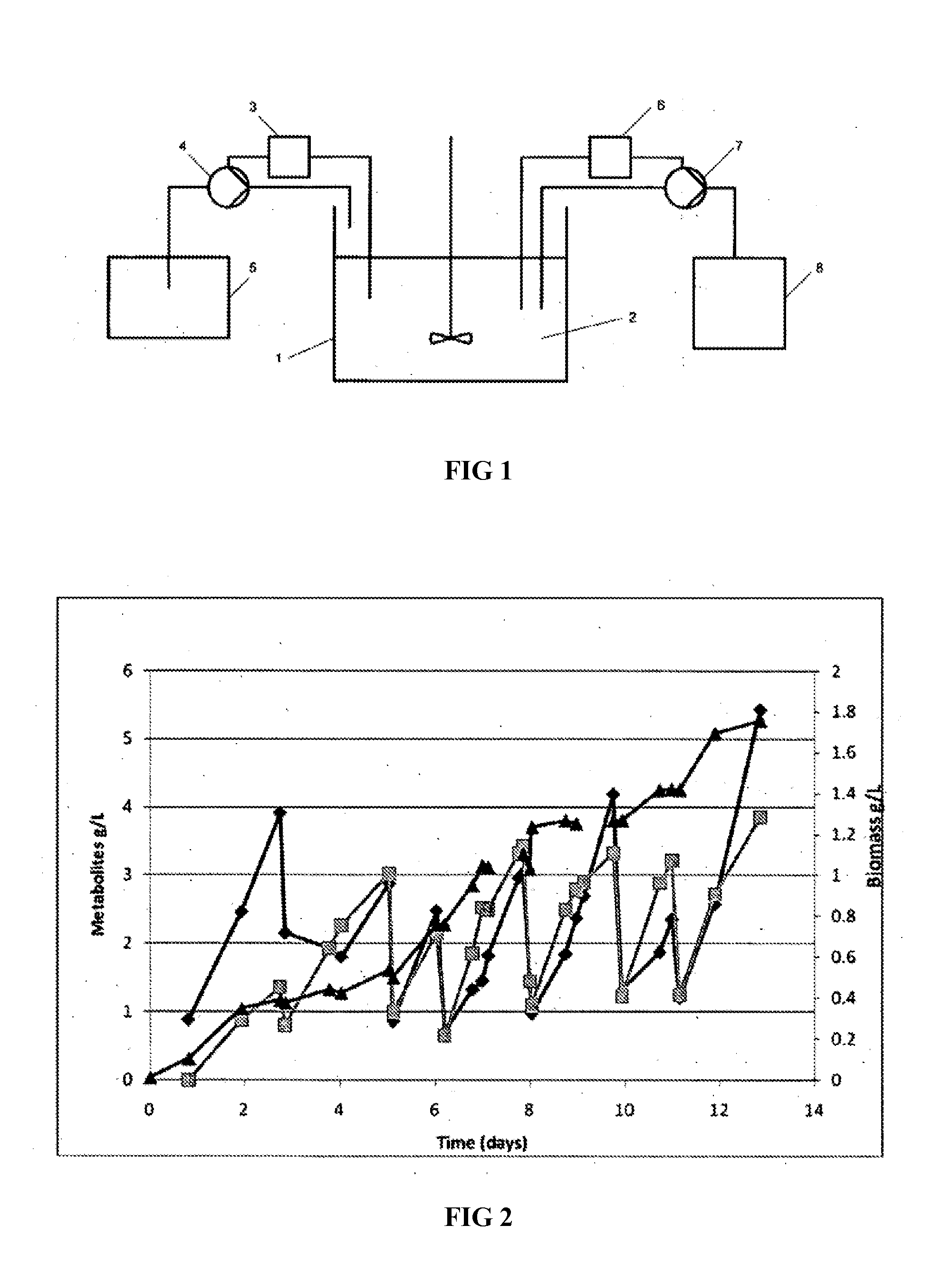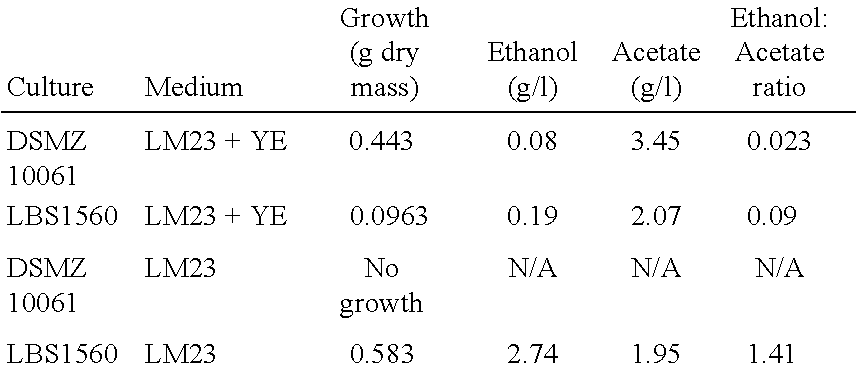Novel Bacteria and Methods of Use thereof
a technology of bacteria and fermentation process, applied in the field of microbial fermentation of gases, can solve the problems of inability to meet the needs of ethanol production in all geographies, the efficiency of ethanol production using such fermentation process may be less than desirable, and the cost of these carbohydrate feed stocks is influenced, etc., to achieve a higher ethanol concentration, a higher ratio of ethanol, and a faster growth speed
- Summary
- Abstract
- Description
- Claims
- Application Information
AI Technical Summary
Benefits of technology
Problems solved by technology
Method used
Image
Examples
example 1
Production of a New Bacterial Isolate of the Invention
[0181]The new strain Clostridium autoethanogenum LBS1560 was produced through a dedicated program of selection and propagation of microbial cultures initiated from the parent C. autoethanogenum culture (DSMZ 10061) over a period of 18 months.
Methods
[0182]A frozen stock of C. autoethanogenum 10061 (obtained from DSMZ) was initially thawed and used to inoculate LM23 medium prepared with 5 g / litre yeast extract in the presence of 95% CO and 5% CO2. This culture could not be made to grow on LM23 medium in the absence of Yeast Extract. In an effort to overcome the cultures dependence on yeast extract over a period of months, actively growing microbial cultures that were observed to produce the most ethanol and the highest ratio of ethanol to acetate were repeatedly subcultured into medium containing ever decreasing concentrations of yeast extract, always in the presence of 95% CO 5% CO2 headspace gas. After this period cultures growin...
example 1.1
Rapid Growth Selection
[0183]In order to select for fast growing cultures, the micro-organisms propensity to produce acetic acid as a by-product of energy metabolism during periods of growth on a continuous 95% CO, 5% CO2 gas stream was exploited. The accumulation of acetic acid in the growth medium has the effect of lowering the pH of the process. Accordingly, a fermenter configuration that diluted the culture in a growth dependent way in order to introduce a pressure that would select for the fastest growing populations was developed. An exemplary configuration is shown in FIG. 1, wherein a culture of micro-organisms was fermented in a bioreactor 1. pH of the nutrient media 2 was monitored by a conventional pH probe 3. Deviations in the pH reading from the set point of 5.5 caused a pump 4 to be activated, however, rather than the signal from the probe being relayed to a pump that dosed a base or acid solution; in this case the pump was linked to a bottle 5 containing fresh anaerobi...
example 2
Culture and Storage of LBS1560
[0186]C. autoethanogenum LBS1560 can be cultivated using the following conditions: growth on 95% CO gas (5% CO2) 35 psi in LM23 medium, at 37° C., pH 5.5, with agitation (200 rpm shaking) under anaerobic conditions. Growth may be monitored by measuring OD at 600 nm and microscopic analysis.
[0187]For storage, a log phase culture of LBS1560 in LM23 +20% glycerol is flash frozen and then stored at −80° C.
PUM
| Property | Measurement | Unit |
|---|---|---|
| concentration | aaaaa | aaaaa |
Abstract
Description
Claims
Application Information
 Login to View More
Login to View More - R&D
- Intellectual Property
- Life Sciences
- Materials
- Tech Scout
- Unparalleled Data Quality
- Higher Quality Content
- 60% Fewer Hallucinations
Browse by: Latest US Patents, China's latest patents, Technical Efficacy Thesaurus, Application Domain, Technology Topic, Popular Technical Reports.
© 2025 PatSnap. All rights reserved.Legal|Privacy policy|Modern Slavery Act Transparency Statement|Sitemap|About US| Contact US: help@patsnap.com


